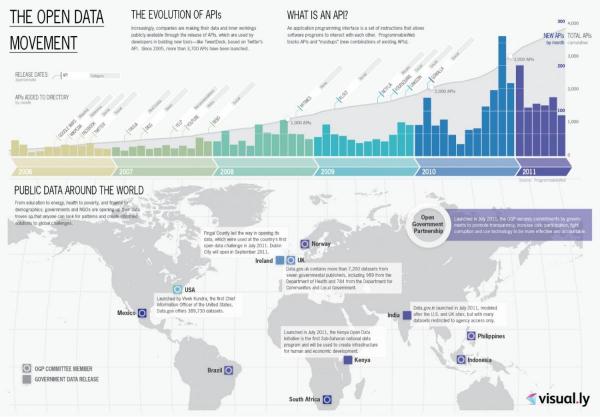You are here
Lori Ayre's blog
Choosing Software: Open or Closed Source? Locally Hosted or Vendor Hosted
Submitted by Lori Ayre on Wed, 08/03/2011 - 5:00pmI just read a good article on Motionbuzz.com called Control vs. Responsibility: How to choose the best software for your business. The author is addressing the issues around choosing open source or closed source software and hosting it yourself versus using the vendor for hosting.
As he says below...the option that makes the most sense for you will depend on you or your organizations need for control and the level of responsibility you are equipped to take on.
Good News for Evergreen - now a member of Software Freedom Conservancy
Submitted by Lori Ayre on Wed, 06/15/2011 - 5:00pmGood news for all Evergreen Users!
The Software Freedom Conservancy welcomes the Evergreen project as its newest member. Evergreen joins twenty-six other Conservancy members, who receive the benefit of aggregated non-profit status available to all Conservancy member projects. Conservancy and the Evergreen community, including librarians, developers, and documenters, are excited to announce that Evergreen is now a member of the Software Freedom Conservancy.
Procurement and an Open Source ILS
Submitted by Lori Ayre on Mon, 06/13/2011 - 5:00pmThere was some discussion on the Koha Mailing List recently about how to go about procuring an open source ILS...or at least, how to remain open to the possibility of moving to either an open source or proprietary ILS. The thing about the traditional procurement process is that it makes if very awkward (at best) to unmanageable (at worst) for the open source service providers for two reasons:
NISO Revised Recommended Practice for RFID in U.S. Libraries Available for Public Comment
Submitted by Lori Ayre on Wed, 05/11/2011 - 5:00pmIt's official....NISO recommends ISO 28560-2. From NISO Newsline: NISO announced the availability of RFID in U.S. Libraries (NISO RP-6-201x) for a thirty day public comment period, beginning immediately and ending on June 9, 2011.
RFID and SIP – Potential for Big Improvements for Libraries
Submitted by Lori Ayre on Sun, 04/10/2011 - 5:00pmMick Fortune, of RFID-Changing Libraries for Good fame notes that the new data model standard released by ISO just a few weeks ago (ISO 28560) “presents both a threat and an opportunity for suppliers. The threat is obvious. Up until now it has proved too difficult for most libraries to switch suppliers once they have purchased an RFID solution.” With the potential for interoperability between RFID systems, the library RFID marketplace may soon face competition.
ISO 28560 RFID in Libraries Standard Published – What Does That Mean?
Submitted by Lori Ayre on Sat, 03/26/2011 - 5:00pmOn 3/22/211, ISO 28560, the RFID in Libraries Data Model and Encoding Standard was published. It is composed of three parts. Part One describes the data models and data elements while Parts Two and Three provide for two options for encoding the data on the tags. The U.S. will eventually select one of these two models and specify the mandatory and optional data elements to be used in libraries. This will be a NISO standard.
Wanna Lease Some Self Check Machines or AMH Equipment?
Submitted by Lori Ayre on Wed, 03/02/2011 - 4:00pmLike all things technology, your equipment will be ready for an upgrade within five years — not because it is falling apart (especially in the case of 3M equipment) — but because even better products will be available. Rather than getting stuck with the old model, now you can simply switch the latest greatest thing after a few years and save yourself some cash.
Keep Struggling with Ebook DRM or Boycott?
Submitted by Lori Ayre on Sun, 02/27/2011 - 4:00pmThis appears to be the last straw. Keep struggling with ebook DRM or boycott?
Maximize the Potential of Your Public Library: A Report on the Innovative Ways Public Libraries are Addressing Community Priorit
Submitted by Lori Ayre on Thu, 02/24/2011 - 4:00pmI’m passing along this very important report from the International City/County Management Association (ICMA) as part of their Public Library Innovations grant program funded by Bill & Melinda Gates Foundation.
I’ve pulled out this excerpt chock full of useful stats for you to use when you talk to people about budget cuts!

